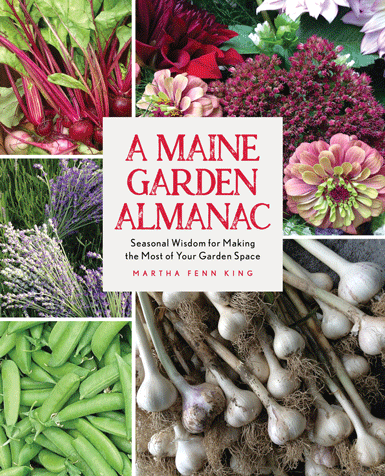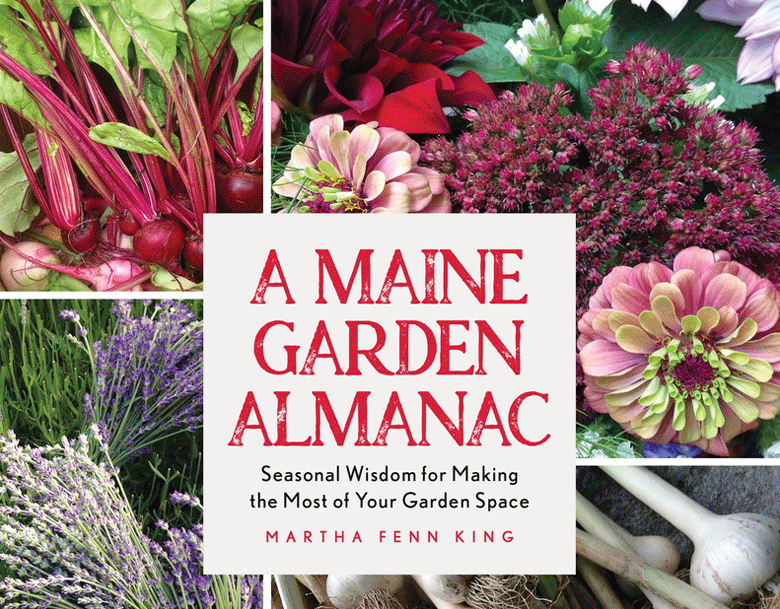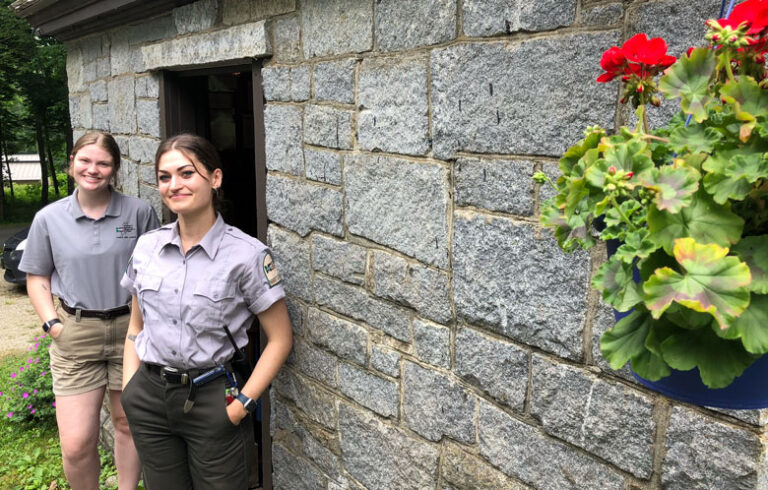A Maine Garden Almanac: Seasonal Wisdom for Making the Most of Your Garden Space
By Martha Fenn King, Down East Books (2023)
There are a lot of books I end up reading because they have “Maine” in the title. Even if not for review purposes, I’d probably grab them anyway, be they fiction or nonfiction, familiar author or new name.
Martha Fenn King is someone I hadn’t heard of, although she has written a gardening column for her local newspaper, The York Weekly. A Maine Garden Almanac compiles those columns.
Besides having a vegetable and flower CSA , she has written poetry and children’s stories and is a retired nurse. She emphasizes growing healthy food, organic and pesticide-free. She also provides lots of encouragement to novice gardeners in a cheerleader role she seems to relish.
I think she’d make a great “coach” who could get more kids growing food.
This book might appeal to those looking for that enthusiastic support, some advice on growing techniques and varieties of veggies, and a better understanding of the bugs and weather which can wreak havoc in a home garden.
This is a kind of folksy “down home” book that isn’t intended to be great literature. And it isn’t an authoritative book on growing food like those of another Mainer, Eliot Coleman.

King thanks her editor but the book has some flaws an editor should have caught—her punctuation is frustrating, for example. I noticed a Bangor Daily News article excerpting a chapter of hers that included an editorial note: “This has been lightly edited for clarity.” The whole book would have benefited from that kind of help.
Because it is a compilation, topics end up being covered multiple times. Garlic is an example, with repetitious advice. No time frame is provided with dates of articles, so references to “this summer” or “that season” are somewhat meaningless.
I think when these were columns, one or two platitudes per column could have been bearable. But to read the collection in its entirety, the book starts to feel saccharine, sappy, and cliche-ridden.
The pictures are great, and there are many. And I do feel inspired to start growing ginger and sweet potatoes, for which she provides ample directions. This book could be a step towards what I suspect King would do brilliantly—combine her gardening advice and health concerns with her hearty can-do attitude and generous enthusiasm in a book aimed at a younger audience. I think she’d make a great “coach” who could get more kids growing food.
Another Mainer, Roger Doiron of Scarborough, founder of Kitchen Gardens International, was successful in convincing First Lady Michelle Obama, in her early months in the White House, to start a vegetable garden on the grounds. Not only did she do that, but she brought children from Washington D.C. elementary schools in to help and learn.
There is evidence to support that when children work in gardens, it has a positive impact on many areas of their lives, including school performance. They practice skills like planning and patience.
And as King writes, “We have so much to learn about life, just from the humus under our feet.” She continues, “If we can care for our organic matter, perhaps we will have more nutritious foods to eat, microbes for health, and a sponge to soak up the rain. Let us care for our humus… our ecosystem and microbiome—the Earth depends on our help.”
Who more importantly needs to hear this concern than children growing up today?
Tina Cohen is a therapist who lives part of the year on Vinalhaven.





